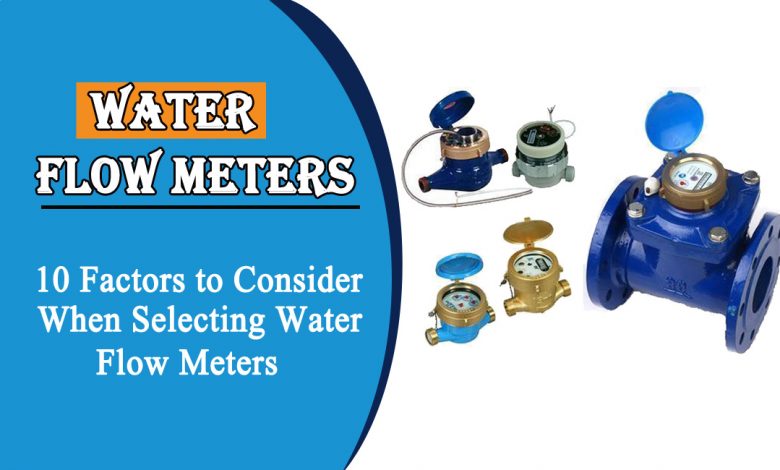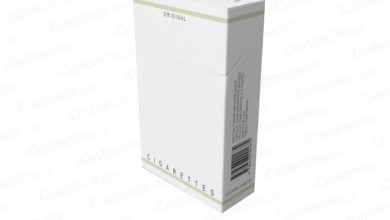10 Factors to Consider When Selecting Water Flow Meters

Water flow meters are vital in monitoring the water you use in firms or residential areas. You can also use these meters in other areas like food and beverage industries, medical research, oil, gas, etc. No matter the use, you need to be keen on the choice of your flow meter.
There are some ten crucial factors you should consider when selecting a water flow meter. Below is the list and the reason you should consider those factors of water flow meters.
Quality of the Flow Meter
Every design of a liquid flow metering tool differs in quality. A quality flow meter will give you accurate readings for a long time with no need for recalibration.
You can tell the quality of the flow meter by the price tag against other meters of the same design. Also, it should have a long-term warranty. No manufacturer will risk having a long-lasting warranty on low-quality products. For high-quality meters, it is very unlikely they will break down easily. Thus, they won’t feel a pinch when they replace one in a hundred meters.
Flow Range
You need to know the average flow of fluid in your system. It helps you know the type and size of a flow meter you will need. Most importantly, it would help if you had an idea of the highest and the lowest flow rate that your system can produce. Then when selecting a flow meter, it should gauge slightly higher and lower than the flow system can produce.
Don’t use water flow meters with a large variance above the possible flow rate of your flow channel. It will lower the quality of gauging and give you wrong readings.
Operating Pressure and Temperatures
Different flow meters are made of different materials. Sometimes, their principle of operation dictates the material they are made of. The heat level and pressure of the fluid in use will affect the material of the flow meter you can select.
A few designs of flow meters will give you perfect flow readings under extreme flow pressure and heat levels. But there are a few that will break down under extreme traits.
Accuracy and Repeatability
Every industry with fluid flow needs different levels of accuracy. In the medical and food industries, high levels of accuracy are needed. Accuracy errors can lead to mass poisoning. Thus, you should select a flow meter that has high accuracy. In the oil industry, you’ll need high accuracy to cut losses.
For any reason that calls for accuracy, select the best flow meter to serve the purpose. Besides accuracy, the meter should give repeatable correct readings for a long time. It ensures you have consistent meter readings.
If your firm only needs flow rate estimates, you can select a liquid flow metering tool to give you a repeatable estimate.
Sensor Type
There are several flow sensing techs in the market. All were made to meet the needs of the different traits of liquids and gases. You can’t use a normal water flow meter to gauge viscous and slurry fluids. The viscous fluids are slow and sticky. If you use a meter with moving parts, they will stall.
Each sensor type addresses a group of fluid traits. You have to assess your liquid to check the traits. Then, use those properties as a basis to select your flow meter. Some sensor types are Coriolis, venturi, electromagnetic, vortex, turbine, orifice plate, etc.
Installation
You should know the installation process of a flow meter. If you can’t do it yourself, you should hire a technician to install the flow meter.
There are a few factors that affect the installation of a flow meter. Some water flow meter types need a straight flow upstream and downstream. The straight channel ensures that the meter does not record errors due to obstruction. First, assess if your flow system has a Sufficient length of straight pipes for such flow meter installation. If not, you should look for a meter that can work well with disrupted flows.
Maintenance
Every flow meter needs maintenance. But the wait time differs from one flow meter to another. If you can access the flow meter easily, you can have a maintenance schedule every month. All you need is the cost of maintenance and the accuracy needs in your industry. If they are sustainable, then you can have a meter with high maintenance needs.
The oil industry needs high accuracy. Then in some cases, meter installation is far from daily access. Thus, you will need a flow meter that will function for years without the need for maintenance. You should check the installation and firm’s needs and the maintenance needs for a flow metering tool before settling for one.
Life Cycle
Every meter has an expected life span. Some applications like the oil industry need a meter that can serve you for at least 25 years. Also, the meter should not need maintenance for 25 years.
Other uses may need disposable liquid flow metering tools. For instance, some anesthesia applications and other medical drips need one-time use. Other meters will last about 2-3 years. The choice depends on the industry’s needs.
Type of Fluid
The type of media largely determines the type of liquid flow metering tool you will need. Each media has different pressure, temperature, viscosity, and conductivity. These traits affect the type of meter you can use.
Viscosity and purity of the fluid may require you to use a meter with no moving parts. In other applications, mechanical flow meters will work perfectly.
The conductivity of a fluid can also limit the type of meters you can use. An electromagnetic meter will only work with conductive fluids.
Output and Indication
Each flow meter will give you output data. However, some meters will give you some raw data that you’ll need to calculate and convert. However, some meters will do the calculations and give you the final usable data.
The final data will depend on what you need it for. It could be for billing, process control, or monitoring, and regulatory reporting.
Conclusion
Liquid flow metering is vital in many industries. Many people do it to monitor fluid usage. Others may need water flow meters to avoid losses and wastage. The factors above will help you select the best flow meter for your use.





